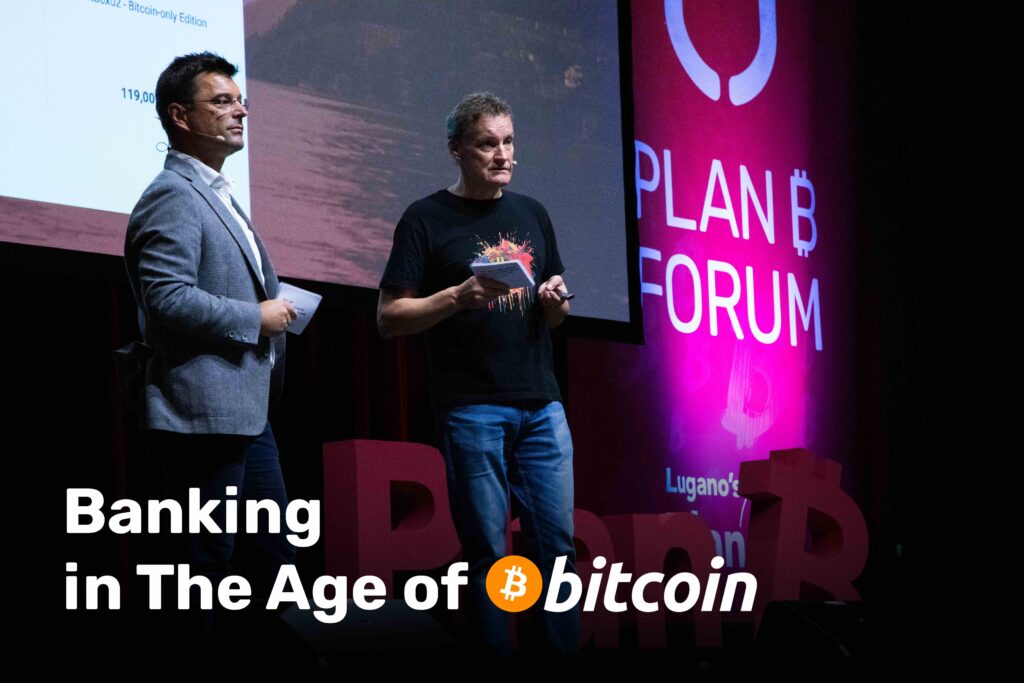In the Austrian economics school of thinking, it is believed that the world should be running on a free market standard, allowing individuals to choose the currencies that best serve their needs, without the interference of central bank authorities and governments on money distribution and creation. True freedom entails responsibility and maturity, founded on the idea that a default currency should be robust and dependable, fostering stability and reliability in financial systems.
Yet, our reality is evidently different, most nations are governed by central bank authorities responsible for currency issuance and distribution. In the EU there’s the Euro, in Switzerland there’s the Swiss Franc, and in the USA and many other countries there’s the USD. The latter one has even defaulted to the currency that most of us use to do international transactions with.
Nowadays money lives in the digital world, being transacted inside credit and debit cards, and apps on our phones,making paper money, also known as cash, an endangered species. And with innovative technologies like Bitcoin and Stablecoins, enabling seamless peer-to-peer cross-border transactions,central banks are seeing the need to catch up and stay relevant. Bringing to the table the discussion around CBDCs (Central Bank Digital Currencies). Why do we need CBDCs if all this technology already exists and it works pretty perfectly?
During the Lugano Plan ₿ Forum, Thomas Moser from the Swiss National Bank discussed this, focusing on the coexistence and practicality of Bitcoin, stablecoins, and CBDCs. A talk regarding the Swiss banks views and plans to stay up to date.
Many banks are focusing on retail CBDCs, which means individuals will get their money digitally directly from their country’s central bank. However, this raises concerns about governmental oversight over transactions, potentially leading to increased censorship and asset freezing. There’s also the fear of unrestrained digital currency “printing,” exacerbating inflation.
According to Moser, the Swiss National Bank doesn’t think retail CBDCs are necessary, on the contrary they believe that the system in place works pretty well. They are exploring censorship-resistant and privacy-conscious CBDCs, working on three projects: wholesale CBDCs, a prototype CBDC resistant to quantum computing, and a retail CBDC, ultimately deemed unnecessary for Switzerland.
The focus on wholesale CBDCs is particularly interesting, with Moser emphasizing their potential in transactions between banks and stablecoin providers, thereby safeguarding large financial entities from total collapse.
He opened with the following argument; “The Central Bank cannot go bankrupt in its own currency, you have no counterparty risk.” He then proceeded to talk about how these wholesale digital cash would be able to handle transactions directly between banks and stablecoin providers, creating an insurance that would avoid total bankruptcy for large market makers like banks and crypto exchanges. It concluded that the Swiss bank projected that Bitcoin, stablecoins, and CBDCs can co exist and serve different purposes, with one single common view, keep respecting individuals sovereignty.
The perspective of the Swiss bank is quite unique, and it’s not surprising that they hold it. Switzerland is known for advocating for user privacy and strictly adhering to bank secrecy, barring compelling evidence of the use of Swiss banks for criminal activities.
Banks may fear that Bitcoin could render them obsolete, but some institutions have already addressed this concern. Consider the Bavarian Bitcoin bank, known as Volksbank Raiffeisenbank Bayern Mitte eG. They attended the Plan ₿ Forum to explain why they embrace Bitcoin.
Andreas Strebb, their manager, stated, “It’s our responsibility to provide our customers with safe and informed access to these new financial tools”—a remarkable stance for a banker. They assert that self-custody is crucial for proper wealth management, offering tools and guidance to customers interested in Bitcoin.
The discussion centered on how banks can adapt with Bitcoin, without relying on CBDCs or other assets to remain relevant. The debate around the future of banking in the age of Bitcoin brings to light a fundamental shift in how we perceive financial systems. Bitcoin, contrary to the fear of many traditional banks, does not translate into the end of private banking. Instead, it pioneers a new era of free-market principles, where choice and autonomy in financial matters become key.
Bitcoin challenges the status quo, offers an alternative that respects individual sovereignty, and promotes a truly global marketplace.




